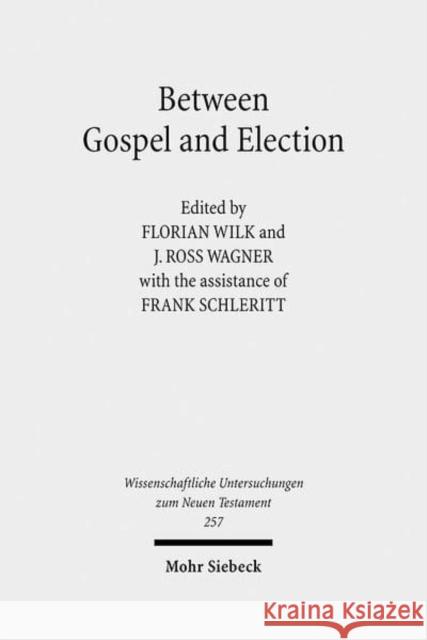Between Gospel and Election: Explorations in the Interpretation of Romans 9-11 » książka
Between Gospel and Election: Explorations in the Interpretation of Romans 9-11
ISBN-13: 9783161505331 / Angielski / Twarda / 2010 / 554 str.
How do the truth claims of the gospel of Christ square with the biblical testimony to God's abiding election of the Jewish people? In Romans 9-11, the apostle Paul reflects deeply on this fundamental theological question. The interpretation of these chapters has long been contested, however. The present volume assesses the current state of research and opens up fresh lines of inquiry, taking into account insights generated both by the New Perspective on Paul and by ongoing Jewish-Christian dialogue. Twenty-six essays in English and German - representing the fields of Biblical Studies, Judaic Studies, Systematic Theology and Practical Theology - examine the theological horizons, history of interpretation, literary contexts, argumentative structure, theological themes and contemporary significance of Paul's arguments. With contributions by: Friedrich Avemarie, John M. G. Barclay, William S. Campbell, Susan Eastman, Reinhard Feldmeier, Beverly Roberts Gaventa, A. Katherine Grieb, Klaus Haacker, Wolfgang Kraus, Mark D. Nanos, Karl-Wilhelm Niebuhr, Enno Edzard Popkes, Mark Reasoner, Wolfgang Reinbold, Martin Rothgangel, Dieter Sanger, Berndt Schaller, Frank Schleritt, Notger Slenczka, Katherine Sonderegger, R. Kendall Soulen, Christoph Stenschke, Annette Steudel, J. Ross Wagner, Florian Wilk, N. Thomas Wrigh
How do the truth claims of the gospel of Christ square with the biblical testimony to God's abiding election of the Jewish people? In Romans 9-11, the apostle Paul reflects deeply on this fundamental theological question. The interpretation of these chapters has long been contested, however. The present volume assesses the current state of research and opens up fresh lines of inquiry, taking into account insights generated both by the "New Perspective on Paul" and by ongoing Jewish-Christian dialogue. Twenty-six essays in English and German - representing the fields of Biblical Studies, Judaic Studies, Systematic Theology and Practical Theology - examine the theological horizons, history of interpretation, literary contexts, argumentative structure, theological themes and contemporary significance of Paul's arguments.











